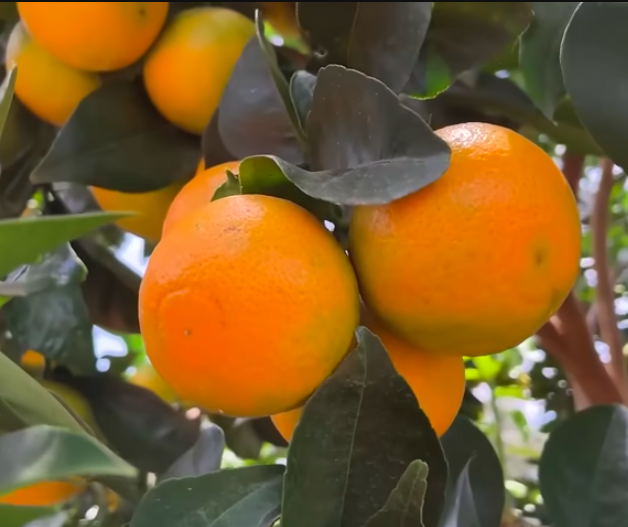These are exciting times for Aaron Ndisyi, a farmer and pixie extensions officer based in Makueni County. Born and raised in Makueni, Mr Ndisyi realized his love for farming early, ending up with a successful pixie farm. “My love and passion for farming started way back when I was young,” he says.
After completing Form Four in 2011, he took on a number of informal jobs while practising cabbage farming, waiting for his siblings to complete school since his parents were unable to educate them at the same time.
> Meet Jane Kimari, Kiambu Farmer Minting Millions From Unique Cabbage Variety
Four years later, Mr Ndisyi joined college and pursued general agriculture course, graduating in 2019. Fortunately, he got a job with pharmaceutical companies that enabled him to get the capital to start farming.
Mr Ndisyi’s father gave him land after seeing his son’s passion for farming. He was into cabbage and citrus fruits, although most of the citrus plants didn’t grow well. One plant that was successful produced 120 kilograms, and at the time, a kilogram was selling for Ksh100. This harvest motivated him to plant another 1,400 citrus trees.
“The 8-acre farm I am working on was given to me by my dad after seeing the passion I had. I planted cabbage and citrus. Most of the citrus plants dried up, but one mature citrus tree produced 120kg. With each kilo selling for a hundred shillings, this really motivated me. I asked myself, if I could make this from a single plant, what about a thousand plants, and that’s when I planted 1,400 citrus trees.”

Mr Ndisyi tells us that citrus farming requires patience since it takes three and a half years to start yielding results, and each plant consumes at least 20 litres of water per week. Furthermore, he says that farmers who depend on rain may only have a single harvest per year.
However, he can harvest twice a year because he waters his plants. He has engineered his crop harvesting to take place during the off-season to maximize profit. “You must be patient as a farmer. After 3.5 years, you will have a harvest, but after that, you will make a lot of money,” he says. “I engage in agribusiness, so I have to water my plants during the dry months, ensuring that my harvest aligns with the off-seasons.”
He says that as a pixie farmer, you can practice mixed farming of crops like cabbage, kale, and tomatoes to sustain yourself before the harvesting season. He further adds that pixie fruits have a ready market, and sometimes he has to let go of contracts due to the high demand.
“I had to let go of a multi-billion pixie fruit contract because I could not meet the demand. The market is so huge that there are not enough pixie fruits for export. Right now, I expect to start harvesting next week, but what I anticipate to harvest cannot meet the customers’ demands. Some have already called requesting,” he says.
Pixie planting process
Apart from farming, he offers extension services such as consultations or managing the planting process on behalf of clients. “I offer planting services for pixie plants to my customers. I charge 104,000 shillings to plant already grafted pixie plants for four months or you can choose to pay 88,000 shillings to graft the lemon plant with pixie zion later.
Mr Ndisyi says a mature tree can produce 80kg to 100kg, and the current price per kilogram is 150 shillings, raking in at least Ksh12,000. “When you request planting services, the charges cover everything from labour to planting inputs,” he says.
In an interview, Mr Ndisyi calls on the government to assist pixie farmers in creating a supportive society, similar to tea or milk farmers. Furthermore, he advises young people to consider agribusiness rather than compete for white-collar jobs.
> University Graduate Turns to Fishing After Failing to Secure a Job












Leave a comment